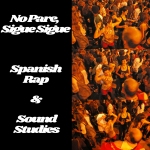Voorgedragen tijdens de presentatie van De Muur, Den Haag, voormalige Amerikaanse ambasade, 19 februari 2019.
Wim Nijenhuis: De lach van Paul Virilio
De film over Paul Virilio, Penser la Vitesse, die regisseur Stephane Paoli in 2008 gemaakt heeft in opdracht van Arte France en die in 2012 werd uitgezonden door de ARD, thematiseert het Totale Ongeval dat Virilio voorspeld heeft in zijn boek La bombe informatique (1998). Het is opvallend dat de makers van deze film weinig aandacht hadden voor Virilio als urbanist. Daarmee negeren ze met hoeveel verve hij aan de kaak heeft gesteld hoe onze steden te lijden hebben onder het geweld van de vehiculaire technologische vooruitgang.
Voordat ik verder ga met Virilio als urbanist, wil ik kort stilstaan bij zijn lach die ons aan het einde van de film zo heeft bevreemd. Blijkt hieruit dat Nouvel gelijk heeft met zijn bewering dat Virilio niet geloofde wat hij zei?
Ik vind het waarschijnlijker dat hij plezier had om zijn eigen uitspraken, een plezier dat ook reclamemakers kennen, wanneer ze een geslaagde slogan hebben ontwikkeld. We zagen dus niet de lach van de valse filosoof, maar de lach van de kunstenaar. Laten we eens kijken naar de zin van Virilio, die we afgedrukt hebben op de uitnodiging: start citaat ‘ Op ieder moment kan iedereen op de planeet (…) dezelfde paniek beleven. We zijn van de standaardisering van de meningen – die mogelijk werd dankzij de persvrijheid- overgegaan naar de synchronisering van het gevoel. (…) Voorheen was onze samenleving een gemeenschap van gedeelde belangen, vanaf nu zal ze voortbestaan als communisme van de affecten’. einde citaat
Is dit niet een fantastisch compacte uitspraak die zindert van betekenis? Voorbijgaand aan de inhoud valt niet alleen het verrukkelijk consequente negativisme op,- ‘dezelfde paniek’, de persvrijheid die standaardisering bracht -, nog belangrijker zijn de analoge positionering van de begrippen ‘standaardisering en synchronisering’ en de negatieve betekenisbesmetting van het begrip gemeenschap met het zo beladen begrip ‘communisme’.
Het experimenteren met retorische, zorgvuldig afgewogen constructies van uitspraken kent in de moderne kunst een lange traditie. Ik denk aan de woordontwaarding van de Dadaïsten tijdens de 1e wereldoorlog in hun strijd tegen valse propaganda, aan de kritische Surrealisten rond Georges Bataille die zich rond de crisisjaren van de vorige eeuw in het tijdschrift Documents wijdden aan betekenisbesmetting vanuit hun afkeer van verheven voorstellingen, de Internationale Situationisten met hun doelverdraaiing van beeld en woord en niet te vergeten de Nouvelle Vague waar cineasten als Jean Luc Godard in hun films de strijd aanbonden met de gefixeerde relatie tussen woord en beeld. Er wordt wel eens gefluisterd dat Virilio staat in deze traditie, waarin overigens veel gelachen werd.
Wat zegt dat over zijn theorie? Zonder uit te sluiten dat ze de werkelijkheid beschrijft en de toekomst voorspelt, is ze een discours dat de werkelijkheid wil ontmoeten. De theorie wringt zich tussen de fenomenen en wil waar mogelijk invloed uitoefenen op de betekenis daarvan. Dit principe kent ook haar grenzen en laat ruimte voor creatieve interpretatie in woord, beeld en daad. Er zijn dan veel Virilio’s, Virilio de kunstenaar, Virilio de denker, de architect en de urbanist, maar ook Virilio onze gelijke, Virilio de autodidact die zijn sprankelende originaliteit wist te cultiveren door zich te ontrekken aan de academische dwingelandij van de universiteit en de taalcensuur van de alomtegenwoordige media. Ik noem enkele hoogtepunten uit zijn loopbaan: glas in lood kunstenaar, lid van de architectengroep Architecture Principe, hoogleraar en directeur aan de Ecole Speciale d’Architecture aan de Boulevard Raspail in Parijs, schuin tegenover het gebouw van de Fondation Cartier, een ontwerp van zijn leerling Jean Nouvel. Hier heeft Virilio tentoonstellingen georganiseerd tot aan het einde van zijn dagen. Tussen 1975 en 1994 was hij redactielid van Traverses, het tijdschrift in boekvorm dat tussen 1975 en 1994 werd uitgegeven door het Centre Pompidou, waar hij samenwerkte met zijn geestverwant en vriend Jean Baudrillard.
In Duitsland, Engeland en de Verenigde Staten is zo ongeveer alles van hem vertaald en becommentarieerd en is een indrukwekkende reeks verzamelwerken verschenen. In Nederland moeten we het doen met een sporadische vermelding in filosofische compendia over het nieuwe Franse denken. Bij mijn weten wordt hij niet of nauwelijks besproken in het reguliere filosofieonderwijs zoals dat met Foucault en Deleuze hier en daar wel het geval is. Gelukkig is zijn boek Het horizon negatief in de vertaling van Patrice Riemens en Arjen Mulder in 1989 verschenen bij uitgeverij 1001.
Hoe Virilio in Nederland ontvangen is moet nog worden onderzocht. Mijn beeld beperkt zich tot de wereld van de architectuur. We zijn flink aan de haal gegaan met Virilio de urbanist en Virilio de architect. Ondanks de ernst van de problemen die hij aankaartte hebben we met zijn werk veel gelachen. Als student lazen we zijn eerste boek Vitesse et politique (Snelheid en politiek) uit 1977 met rode oortjes in de Duitse vertaling van de low budget uitgeverij Merwe Verlag uit 1980: Geschwindigkeit und Politik. In onze hoofden galmen zijn destijds schokkend originele concepten nog steeds na: dromocratie, dromomaan, vectorpolitiek. Hij bracht ons in contact met nieuwe objecten waar we onze tanden in konden zetten. De moderniteit vond niet plaats in de nieuwste villa van de een of andere iconische architect, aldus Virilio, maar op de snelwegen, in de stations en de vliegvelden. Op de Academie van Bouwkunst in Rotterdam zag begin jaren negentig het ene snelwegproject na het andere het daglicht. Stad en weg was het grote thema, we onderzochten het wonen boven, aan en onder de snelweg. Deze trend liep op een miraculeuze wijze parallel met pogingen vanuit de meer officiële architectuurwereld om de snelweg te veroveren op de civiel ingenieur. Dankzij Rijksbouwmeester Jo Coenen, kennen we sinds 2004 de rijksadviseur voor de infrastructuur. In 2007 verscheen ons boek ‘De diabolische snelweg, over de schoonheid van de weg in de grote stad’. Het denken van Virilio speelde hierin een prominente rol.
Ook kunstenaars stortten zich op de snelweg, gesteund door een nieuwe wind bij Rijkswaterstaat. Niet waar Melle?
Na de verschijning van De Muur in 1984 zagen essays het daglicht die de theorieën van Virilio oppoetsten, hercombineerden en doorredeneerden. Ik noem van mijn eigen hand ‘De auto in de tijd van de lichtsnelheid’ (1991) , ‘Stadsgrenzen en hun verdwijning’ (1990) en ‘Architectuur van de soliditeit’ (1988). Op laatste werd gereageerd met bussen vol architectuurstudenten die op excursie gingen naar de vestingen van Vauban die in dit artikel besproken werden. Niet lang daarna werd ons verteld dat er hier en daar uitbreidingswijken verschenen met vestingwalachtige elementen, schijnpoortjes en wat dies meer zij.
In 1996 organiseerde de kunstenaarsorganisatie V2 in Den Bosch de internationale conferentie ‘Architectuur en Media’ waarvan Virilio’s boek Guerre et cinema (Oorlog en film) uit 1984 de inspiratiebron was. In 2010 nam Jan De Graaf deel aan het winnende ontwerpteam van de prijsvraag ‘Herinneringspark 1914-1918, over het Westelijk Front van de Eerste Wereldoorlog’.
Ondanks dat hij geen doorbraak heeft beleefd in de filosofie – gelukkig maar – is Virilio dus niet onopgemerkt voorbijgegaan aan de Nederlandse cultuur.
Ten slotte: Hoe zit het nu met de apocalyptiek van Virilio, met de voorspellingen die hij in de jaren tachtig en negentig van de vorige eeuw heeft gedaan over de verslechterende toestand van de stad?
Twee voorbeelden:
In zijn essay ‘The last vehicle’ (1989) opgenomen in de bundel Looking back to the end of the world uit 1989 beschrijft Virilio het habitakel, een hilarisch concept, dat het statisch voertuig beschrijft als een verblijf dat het huis in de stad zal aflossen. In een soort cockpitachtige setting zit, of ligt de laatste bewoner, de inerte mens die niet meer van zijn meubilair onderscheiden kan worden, voor een set schermen die het hem mogelijk maken de wereld te bereizen zonder zijn huis uit te gaan. Het eindeloze zitten en passieve reizen, dat volgens Virilio zou leiden tot desinteresse voor de fysieke omgeving en een involutie van het menselijke lichaam zou veroorzaken ontmoet de obesitasproblematiek van vandaag. Denk aan de medische rapporten en waarschuwingen van artsen, dat onze kinderen te dik worden omdat ze nauwelijks nog bewegen en veel te weinig buitenspelen dankzij de almacht van de beeldschermen.
Zijn voorspellingen in Vitesse et Politique uit 1977 en Esthetique de la disparition (Esthetica van de verdwijning) uit 1989 dat overal ter wereld in de steden woestijnvormen zouden verschijnen onder invloed van de snelheid, eerst van de auto, later van de elektronische media, treffen vandaag de dag niet alleen op de excessieve maten van parkeerterreinen en verkeersknooppunten, maar ook op een verontrustende eenzaamheidsproblematiek. De leegzuiging en versplintering van de sociale gemeenschap is intussen zo ver voortgeschreden dat overleden buren niet worden opgemerkt en dat individuen in competitie zijn met zichzelf. Menig aanstaande anorexia worstelt depressief voor de spiegel met haar eigen lichaam die haar vijand is geworden (Paul Verhaege in Buitenhof 23 december 2018).


 REWIND! . . .If you liked this post, you may also dig:
REWIND! . . .If you liked this post, you may also dig:


 “
“ In “
In “ REWIND! . . .If you liked this post, you may also dig:
REWIND! . . .If you liked this post, you may also dig:





 REWIND! . . .If you liked this post, you may also dig:
REWIND! . . .If you liked this post, you may also dig: